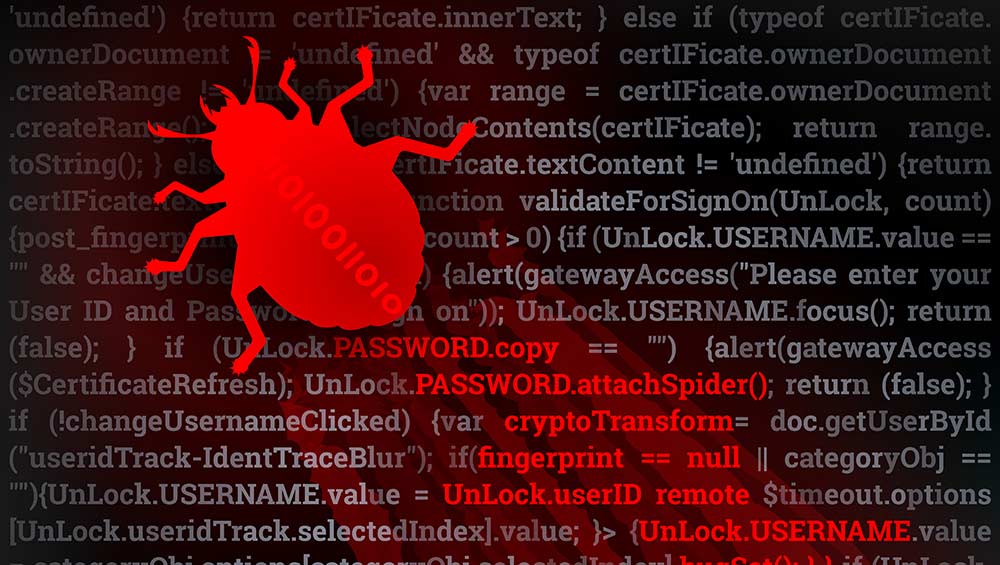Third of all malware created in 2010
PandaLabs’ annual report claims a third of all malware ever made was created last year.

Last year saw the creation of 34 per cent of all malware which has ever existed, according to online security firm PandaLabs.
Statistics released by the company as part of its Annual Security Report 2010 also revealed the biggest threat still comes from Trojans, which comprised 55.91 per cent of the surveyed malware.
The data from PandaLabs also showed spyware made up less than one per cent of malicious software online, whilst 11.6 per cent was fake antivirus software known as 'rogueware'.
PandaLabs said email spam had still been a major problem in 2010 forming around 95 per cent of all email traffic globally. However, within the year, the figure dropped to 85 per cent.
The survey cited proactive measures such as the dismantling of botnets as helpful to the reduction, saying this had reduced the number of computers being used as zombies to send out spam remotely.
The report noted as both social networking sites and smartphones continued to grow in popularity 2010, hackers had been seen to further exploit them, using fake websites and apps.
It was also a year in which cyber-terrorism and cyber-activism or hacktivism' emerged as serious concerns. Most notably the Stuxnet worm attacking nuclear plants in Iran, the Operation Aurora Trojans launched at large multinationals and the various activities of the Anonymous hacker group.
Get the ITPro daily newsletter
Sign up today and you will receive a free copy of our Future Focus 2025 report - the leading guidance on AI, cybersecurity and other IT challenges as per 700+ senior executives
-
 Should AI PCs be part of your next hardware refresh?
Should AI PCs be part of your next hardware refresh?AI PCs are fast becoming a business staple and a surefire way to future-proof your business
By Bobby Hellard Published
-
 Westcon-Comstor and Vectra AI launch brace of new channel initiatives
Westcon-Comstor and Vectra AI launch brace of new channel initiativesNews Westcon-Comstor and Vectra AI have announced the launch of two new channel growth initiatives focused on the managed security service provider (MSSP) space and AWS Marketplace.
By Daniel Todd Published
-
 CronRat Magecart malware uses 31st February date to remain undetected
CronRat Magecart malware uses 31st February date to remain undetectedNews The malware allows for server-side payment skimming that bypasses browser security
By Rene Millman Published
-
 Mekotio trojan continues to spread despite its operators’ arrests
Mekotio trojan continues to spread despite its operators’ arrestsNews Hackers have used it in 100 more attacks since arrests
By Rene Millman Published
-
 “Trojan Source” hides flaws in source code from humans
“Trojan Source” hides flaws in source code from humansNews Organizations urged to take action to combat the new threat that could result in SolarWinds-style attacks
By Rene Millman Published
-
 What is Emotet?
What is Emotet?In-depth A deep dive into one of the most infamous and prolific strains of malware
By Praharsha Anand Last updated
-
 Fake AnyDesk Google ads deliver malware
Fake AnyDesk Google ads deliver malwareNews Malware pushed through Google search results
By Rene Millman Published
-
 Hackers use open source Microsoft dev platform to deliver trojans
Hackers use open source Microsoft dev platform to deliver trojansNews Microsoft's Build Engine is being used to deploy Remcos password-stealing malware
By Rene Millman Published
-
 Android users told to be on high alert after Cerberus banking Trojan leaks to the dark web
Android users told to be on high alert after Cerberus banking Trojan leaks to the dark webNews The source code for the authenticator-breaking malware is available for free on underground forums
By Sabina Weston Published
-
 Qbot malware surges into the top-ten most common business threats
Qbot malware surges into the top-ten most common business threatsNews An evolved form of the banking Trojan was distributed by number one-ranking Emotet in a campaign that hit 5% of businesses globally
By Keumars Afifi-Sabet Published